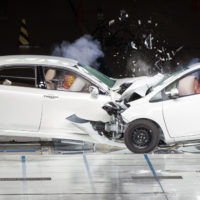Why is Vicarious Liability Important in St. Lucie County Vehicle Collision Claims?

After a serious car crash injury, like a spine injury, the medical bills may exceed $1 million in the first year. Florida has one of the lowest auto insurance minimum requirements in the country. So, many tortfeasors (negligent drivers) do not have enough coverage to make good on all these losses.
Fortunately, Florida also has some of the broadest third-party liability rules in the country. These vicarious liability doctrines give victims an additional source of recovery. However, these claims are quite complex. Only an experienced Port St. Lucie personal injury attorney should handle such cases. Otherwise, the victim could end up paying some or all of these medical bills out of pocket.
Negligent Entrustment Owner Liability
Family members often loan their vehicles to other family members, and friends often loan their vehicles to other friends. The negligent entrustment rule often applies in these cases. Owners are vicariously liable for damages if they allow incompetent drivers to operate their vehicles and these tortfeasors cause car crashes. Evidence of incompetency includes:
- No drivers’ license,
- Safety-suspended drivers’ license,
- Operating a vehicle in violation of a license restrictions, such as a driver with a learner’s permit with no licensed operator in the front seat,
- A poor driving record, and
- Recent “near-miss” car crashes.
Generally, people without drivers’ licenses are incompetent as a matter of law, regardless of how much experience they have behind the wheel. In other situations, most notably a bad driving record, the evidence is not as conclusive. Additionally, in all these cases, the victim/plaintiff must prove the owner knew about the operator’s incompetence.
Commercial negligent entrustment cases, such as Enterprise Rent-a-Car wrecks, work a bit differently, because of an obscure federal law called the Graves Amendment.
Respondeat Superior Employer Liability
Thus rule usually applies if the tortfeasor was an Uber driver, truck driver, bus driver, or another commercial operator. Employers are liable for their employees’ negligent conduct if:
- Employee: If the employer controls the driver, in terms of something like hours worked, the driver is an employee in this context. It does not matter if the tortfeasor was a regular employee or an independent contractor.
- Scope of Employment: Somewhat similarly, any act which benefits the employer in any way is within the scope of employment. For example, in workers’ compensation claims, injuries which occur during a company softball game were within the scope of employment. Happy workers benefit the employer. So does the free advertising of the softball team.
Other employer liability theories, which often arise in assault or other intentional tort claims, include negligent supervision and negligent retention.
Dram Shop Alcohol Provider Liability
Alcohol is a factor in about a third of the fatal crashes in Florida. If a bar, restaurant, grocery store, or other commercial provider illegally sold alcohol, that provider may be vicariously liable for damages.
- Minor: If the customer was under 21, the sale was usually illegal as a matter of law. Many traditional defenses, such as s/he looked older, are inadmissible in the Sunshine State.
- Habitual Addiction: It is also illegal to sell alcohol to people who are habitually addicted to this substance. Evidence of habitual use includes statements that the tortfeasor made in the store and past purchase history at that location.
Moreover, victim/plaintiffs must prove that the accident was foreseeable. Foreseeability is more difficult to establish in packaged alcohol sales, such as convenience store and grocery store alcohol sales.
Social hosts and other private alcohol providers might be vicariously liable for damages as well, under a theory like negligent undertaking.
Connect with a Hard-Hitting Lawyer
The tortfeasor may not be the only party responsible for damages. For a free consultation with an experienced personal injury attorney in Port St. Lucie, contact Eighmie Law Firm, P.A. Home and hospital visits are available.
Resource:
christopherreeve.org/living-with-paralysis/costs-and-insurance/costs-of-living-with-spinal-cord-injury
https://www.eighmielawfirm.com/getting-around-the-graves-amendment/


